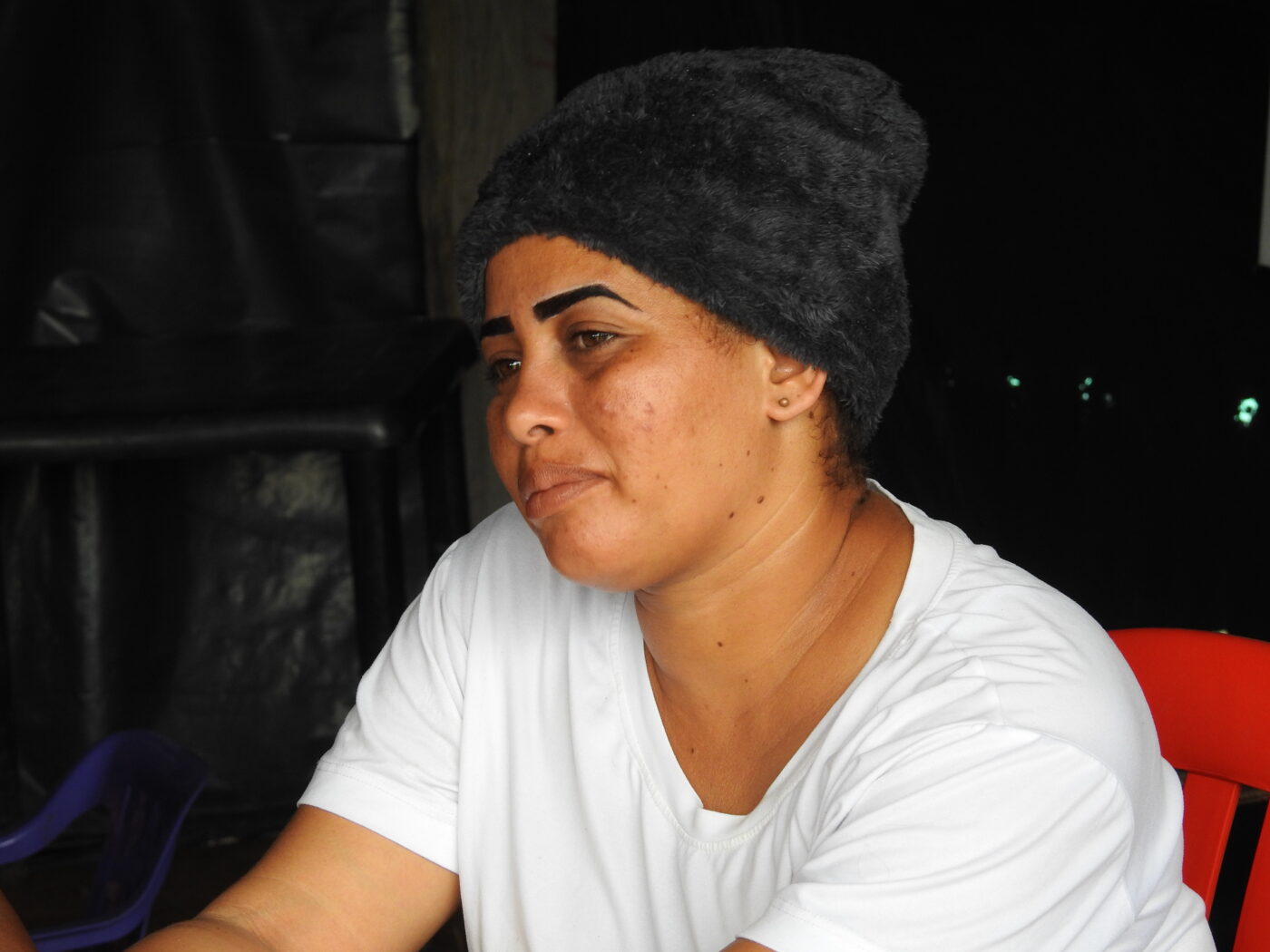Who is Delia and how is she transforming education in Catatumbo?
On January 6, 2015, Delia Carrillo arrived in Colombia from Venezuela by crossing the border through the Pica del Dos, an unofficial trail to enter the country through Norte de Santander. The Pica del Dos leads to the municipality of Tibú, Catatumbo, an area hard hit by armed conflict, drug trafficking and gasoline smuggling.
Delia, like many Venezuelan women in her community, never imagined that she would have to live in an informal settlement flooded by mud and with enormous infrastructure deficiencies. “We came here out of necessity; the pandemic arrived, we had no money for rent or food,” says Delia. After several years of living in the Nueva Esperanza 3 (New Hope 3) human settlement in Tibú, she asserts that this place has transformed her purpose in life.

This woman, leader of the settlement and head of a foundation called Fundación Generación Resilientes del Catatumbo (Catatumbo Resilient Generation Foundation), created the school ‘Proyecto de Educación Mis Primeros Pasos’ (My First Steps Education Project). Delia, along with fellow comrades, observed a huge gap in education: migrant boys and girls dropped out of school due to a lack of documentation and a lack of student places in the main schools in the area. Not being in school in a setting like Tibú translates into boys and girls ending up on the streets, working, collecting scrap metal, or becoming victims of forced recruitment. And in the case of girls, pregnancies from 10 to 12 years of age.
Although Delia never imagined having the vocation to teach, she felt the need to face up to this educational reality by reinforcing basic learning such as reading and writing. She did not have training in teaching, nor did she have the space or the pedagogical tools, but little by little and together with 12 other leaders, what was just a plot of land became a space with plastic walls, zinc roofs, some tables, decorations made from recycled materials, colorful signs, and a few other educational materials that gradually arrived as donations.


Today, the 12 leaders, mothers of the community, fulfill the role of teachers and assistants in two shifts: from 8 to 11:30 a.m. they teach classes for students from 4 to 7 years old; from 2 to 5 p.m. they teach classes for students from 8 to 14 years old. “No one has training,” says Delia, “but now we have the support of Click+Clack and Unicef, who are training us to be able to teach children,” she adds.
Her time, her resources, her ideas… Delia, in addition to being trained in initial education, has invested everything she has to make the school a safe space, a space, she says, that students never want to leave. For this reason, she, together with her colleagues, has made the most of everything that comes into her hands to transform it into something very powerful. As such, something as simple as a La Aldea handbook can be brought to life in the form of puppets created by Berta, Delia’s mother.
Puppets have become a very valuable pedagogical tool. They represent learning, reflection, laughter, play, creativity, art, a tool to face emergencies within this context, in a fun and different way.

“The children are learning… they are learning to express what they feel, what hurts them, what happens to them. Before they were too shy, but through singing, dramatization, and games, they have been experiencing that feeling of ‘yes I can do it’. Now, when we give out roles for them to play with the puppets, everyone wants to take part,” says Chely, co-founder and leader of the Fundación Generación Resilientes del Catatumbo.
